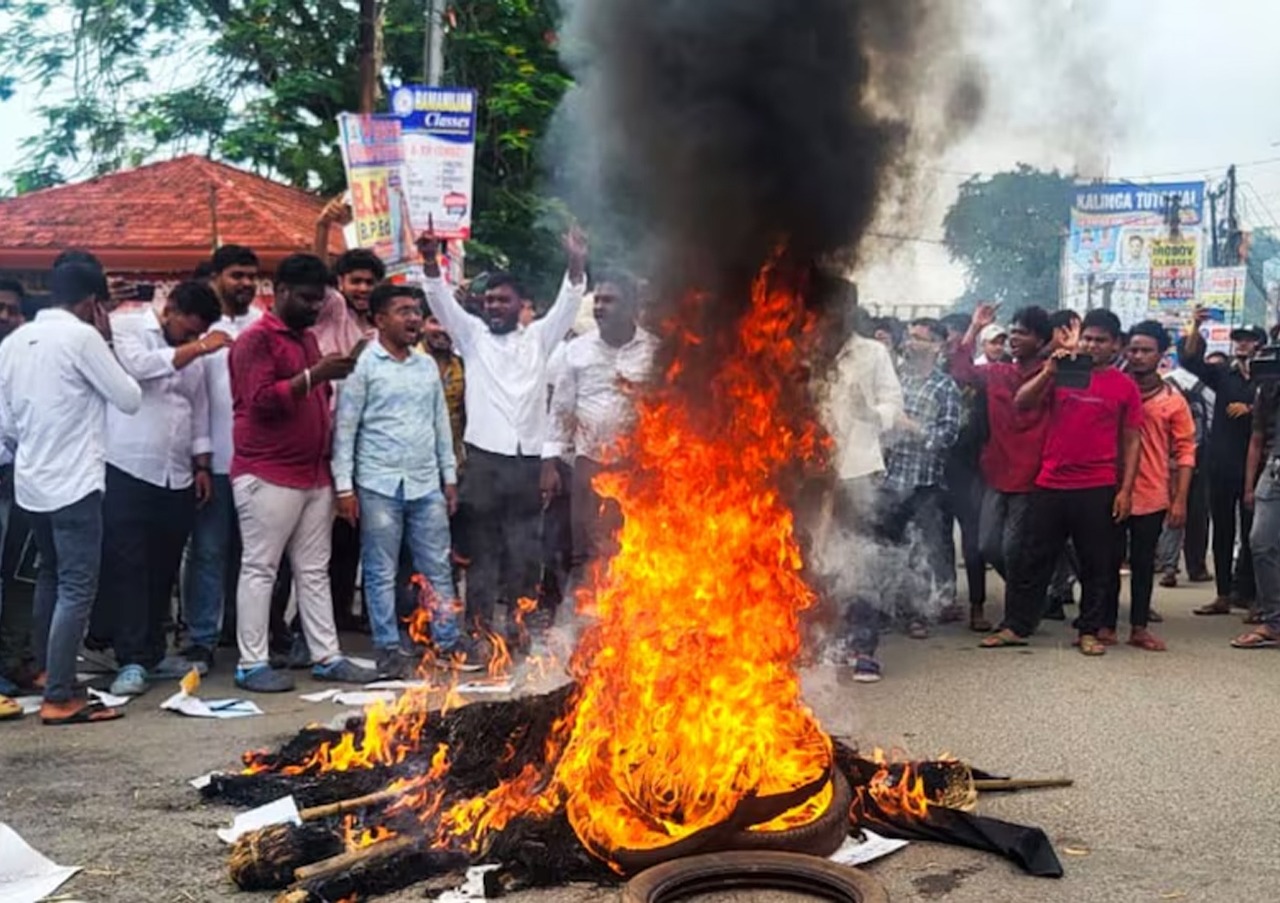
Balasore, Odisha:
A 20 year old student of Fakir Mohan Autonomous College in Balasore, Odisha, succumbed to her injuries overnight at AIIMS Bhubaneswar after setting herself on fire in protest of inaction on a sexual harassment complaint she had lodged. The incident has triggered widespread public anger, political unrest and demands for justice.
According to hospital officials, the victim had suffered burns over 90–95% of her body and had been receiving intensive treatment since she self immolated on 12 July, outside her college following an alleged failure by the institution to address her grievance against a faculty member.
Authorities confirmed that both the head of the education department, Sameer Ranjan Sahoo, and the college principal, Dilip Kumar Ghose, have been arrested and suspended amid the unfolding investigations. Reports say the victim had made repeated complaints as far back as 1 July, to both the college’s internal complaints committee and local police, accusing the professor of demanding sexual favours and threatening her academic career.
Eyewitnesses recounted that during a protest outside the principal’s office, the student doused herself with petrol and set herself ablaze. One male student who rushed to rescue her also sustained serious burn injuries.
In response, Odisha Chief Minister Mohan Charan Majhi expressed his grief and promised stern action. He said, “The government stands firm with the victim’s family in this hour of grief,” and directed higher officials to ensure justice is served.
Simultaneously, President Droupadi Murmu, visiting Bhubaneswar for a convocation, made an unscheduled visit to AIIMS to meet the student, offer prayers and urge that she be provided every possible support.
The National Commission for Women (NCW) has taken suo motu cognisance of the incident, directing the Odisha Director General of Police to ensure a fair investigation, swift action against those responsible, and unimpeded medical care and psychological support for the victim.
Political parties have responded fiercely. The Biju Janata Dal likened the tragedy to a cruel distortion of its own “Beti Padhao, Beti Bachao” campaign, accusing the state government of failing to protect women. The Congress has called for a statewide bandh on 17 July, demanding resignations from the chief minister and the education minister. Meanwhile, opposition leader Naveen Patnaik criticised authorities for inaction despite repeated pleas, and urged Governor Hari Babu Kambhampati, the chancellor of state universities to intervene.
Campus safety has come under scrutiny. Many are questioning the college’s internal probe, which excluded student representation and reportedly lacked transparency.
Numerous stakeholders are calling for systemic changes to prevent harassment of students, and the incident has sparked calls for a judicial investigation. This includes calls for improved counseling services, impartial supervision of campus grievance procedures, and institutional accountability measures.
The student's untimely death has caused grief across the country and put more strain on political and educational establishments. As more information becomes available, authorities must deal with growing institutional and societal pressure to guarantee harassment survivors' safety, justice, and prompt redress.